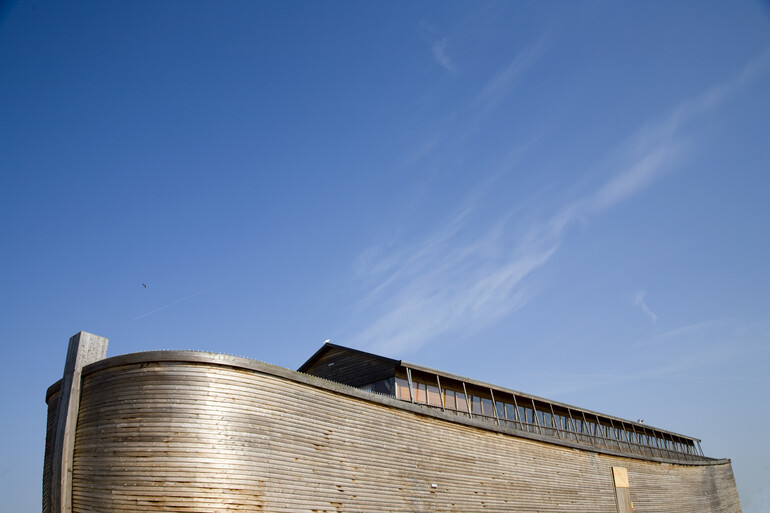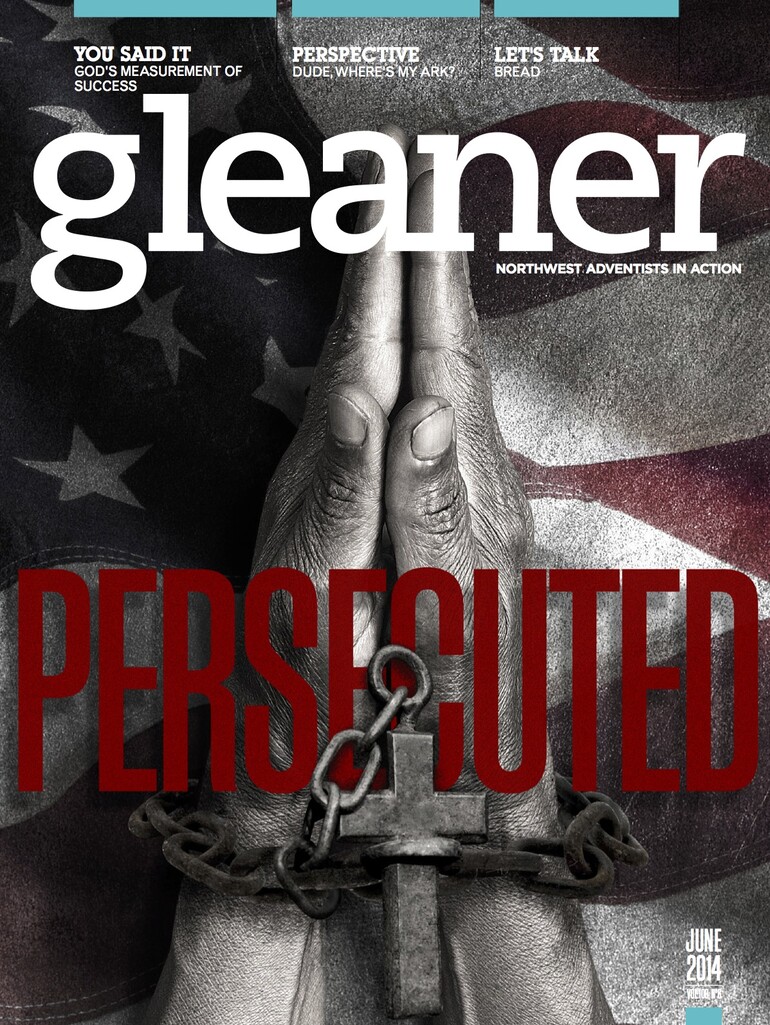Noah's ark has always been a story of God's grace and human survival — not a shipwreck of human stupidity.
So, when the movie Noah recently splashed down in Northwest theaters, it created more than a few waves. More like a tsunami. Even if you didn’t see it, you heard about it.
Had they simply called it The Flood, half of the controversies surrounding this piece would have disappeared. Of course no one from Hollywood ever calls me with marketing questions and a big check, so I am forced to use column space to deal with this.
Before I offer my perspective on the cacophony of criticisms which for weeks clogged up my Facebook news feed, let’s review some of the choice thoughts scampering across the webbernet.
First we had Christian reviewers defending Noah as a “solid adaptation,” stating that the film is in the Jewish tradition of midrash, “filling in a story with details from your imagination — staying true to the source where it says something ... ."1
Certainly, we see minor detail changes even between the gospels. I don’t think anyone in his or her right mind wouldn’t appreciate some sanctified imagination in the telling of a biblical classic.
But the key is “true to the source.”
The midrash falls apart with two words: rock people. You heard me. Helping Noah build the ark are rock people — fallen angels who sympathized with humanity so God encased them in stone. Other books of the Bible (see Entire Bible) specifically fill in details as to the nature of these beings.
No thanks.
Stick to the Book ... I beg of you.
If they had, Tubal Cain would never have been a stowaway on board in this movie. For crying out loud, the pirates that attacked the ark, in the made-for-TV movie, made more sense than Tubal Cain prying open a door that, according to the source material, had been shut by an angel.
Moreover, midrash doesn’t involve changing the character of the characters. The character of the Creator is seen as “a vengeful Old Testament God.”2 You could never adapt the Chronicles of Narnia and have Aslan eating the children — how okay is it to fall into the old clichéd “angry God of the Old Testament” shtick in a cutting-edge adaptation?
Compounding the absurd is the ejection by some reviewers of the most fundamental aspect of adapting source material — namely, the source material: "Aronofsky's film may not be perfect, but criticizing it for not sticking directly to the source material unnecessarily obscures what it does so well ... ."3
Why do “Bible movies” seem to be the only genre praised for not sticking to their sources? I have never seen other films praised for not sticking to their source. If someone replaced Bruce Wayne’s butler, Alfred, with a maid named Alice, the fabric of pop culture would be rent asunder. Imagine Mr. Collins in Pride and Prejudice marrying Jane. Women across time and space would be crazier than Mrs. Bennet in the BBC version.
But here’s probably the most hate-mail-inspiring piece of my rant: Adventist Christians lamenting Hollywood’s distortion of another biblical story by commissioning thousands of Ellen White books with Noah covers.
I wonder how many other movie-themed The Great Controversy covers we have at the ready, how many Spirit of Prophecy missiles in our silos?
Please don’t misread what I am saying. I am an Adventist author — I believe in writing and its power. Good books will always reach eager eyes.
But as Jesus once said about another issue, "This you ought to have done, without leaving the others undone" (Matt. 23:23). Hence my question: With all our insight from Scripture and the Spirit of Prophecy, why didn’t we just make a better movie — first?
Is Hollywood’s Noah the place to pour out all our anger? Where were the Adventist filmmakers, producers and church leadership on this? Where were we? With 17 million worldwide members, and many successful business/institutions, we couldn’t scramble $150 million for a blockbuster to make a significant cultural impact?
We should direct our righteous indignation at our own lack of vision, initiative and creativity. He who tells a good story first wins — not the people in the stands criticizing it. All our vitriol did nothing to stop the cultural impact of Harry Potter or The Da Vinci Code.
Like Noah releasing the dove in the hope of life, we specialize in releasing our “dovetail” criticisms of others. Sometimes our critiques bring back a sprig of hope — usually they take off with no return.
Say you don’t like the film — state your reasons. Great. Now make the next one.
Show us what creation, the fiery furnace, the battle of Jericho and the life of Paul are really about. Show us vignettes of Jesus’ life with dazzling truth and sanctified imagination. The tools to build theatrical arks that we can be proud to own are there — the question is if the body of Christ is willing to use its hands and feet to do the work to build before the next flood of deception sweeps our influence away.
Again.
Follow your Creator by dedicating your talents to creating things that bring Him glory — see entire Bible for inspiration.












